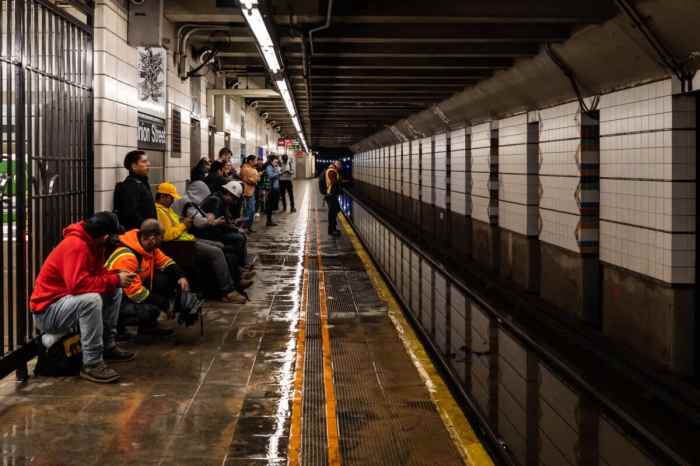Other events caused this column to be written later than I originally planned. Since Mayor Michael Bloomberg named a Charter Revision Commission, ostensibly to review reforms to our city’s constitution but in fact to effect a politically motivated ch
Last week, in discussing the role of the borough presidents, I noted the reforms that resulted by voters’ adopting City Charter Revisions in 1989. Those changes resulted from a process that included 29 public hearings and 25 public meetings over two-and-a-half years.
In addition, the 1988 and 1989 (Ravitch and Schwarz) commissions also scheduled and held hundreds of smaller discussions with various communities and organizations. Vast in-depth mailings of printed materials supplemented an enormous outreach effort.
In contrast, the Giuliani and Bloomberg commissions held many fewer hearings, convened over the summer in three cases, and not much before the summer this year.
The process received its fair and well-earned share of condemnation from an array of good government groups, including Common Cause, the New York Public Interest Research Group and the Citizens Union. In our own borough, the Queens Civic Congress also expressed concern. (Expect a word from the Civic Congress this summer. Watch its Web site, www.queensciviccongress.org.)
Unlike the substantial body of work of the Charter Commission appointed by Mayor Ed Koch and chaired successively by two distinguished public servants, the current and past mayor appointed commissions to achieve political ends. These public servants who chaired the Charter Commission were former MTA and NYS Urban Development Corp. Chair Richard Ravitch and former Koch Corp. Counsel and current Campaign Finance Board Chair Fritz Schwarz.
If a Charter Commission puts a referendum on the November ballot, no other referendum appears. The prior mayor used this device to block a City Council referendum that proposed to bar any use of city funds for a new Yankee Stadium anywhere but its current home in the Bronx. The next year, anticipating a run for the U.S. Senate and not happy that then Public Advocate Mark Green would succeed him, former Mayor Rudy Giuliani sought a change in the mayoral succession in the event a mayor would leave office.
Two years later, the same mayor used the ruse of a commission to block another City Council attempt to hold a referendum on Yankee Stadium. In fairness, one can note that the City Council speaker sought higher office — governor in 1998 and mayor in 2001 — in the years that he promoted his Yankee referenda.
Last year, the voters adopted changes in the duties of the public advocate, including the responsibility to preside over City Council meetings and introduce legislation in that body, as well as a shorter time frame to elect a mayor in the event that that office becomes vacant.
As a result of the City Council’s adoption of rules changes governing that body, most of the changes wrought against the powers of the public advocate must wait until the election of a new speaker of the Council in 2005 when the current speaker leaves due to term limits. But it will more likely be in 2009, when the vast majority of the current council members faces term limits.
This year, the great debate turns on so-called non-partisan elections, changing the electoral process by which we elect our mayors. The issue merits a separate column and I commit to it today.
Making changes in our city constitution, or Charter, its legal name, can make sense. Two concerns come to mind: What needs change that we cannot achieve by other means? And what processes are so broken that they need repair?
A former public official I admire and who may yet return to public service made a point during the 1999 Charter deliberations that remains relevant today. Here is a paraphrased version of that quote: Look at the weighty matters the current commission failed to consider, and determine if the commission ought to place any proposal on the ballot. (Anyone who wants the actual quote can contact me via the TimesLedger or at Bearak@aol.com.)
In no particular order, here’s a litany of weighty matters — all platform proposals of the Queens Civic Congress — that await review and which, if adopted, will make for positive change:
*Re-engineering the Civilian Complaint Review Board as an independent police monitor;
*Making elected officials accountable by requiring mayoral rate-setting boards, including the Water Board, and authorities to prepare budgets approved by the City Council;
*Budgeting city service delivery where appropriate by borough and community;
*Empowering the Independent Budget Office to prepare the Mayor’s Management Report;
*Maximizing community participation in city approval of “major concessions” for private use of public spaces, including parkland; and
*Empowering the Council to review Board of Standards and Appeals dispositions.
Corey Bearak is an attorney and adviser on government, community and public affairs. He also is active in Queens civic and political circles.































